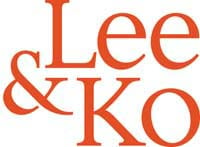News and developments
Recent Supreme Court Decision Discusses the Income Characterization of Consideration for Software under the Korea-US Tax Treaty
Lee & Ko Tax Group is pleased to distribute this Tax Alert to our Clients and Friends of an important tax case recently decided by the Supreme Court of Korea (2022du36155, decided on June 16, 2022) involving certain payments for the purchase of software by a Korean subsidiary from its US parent.
Factual Background
The Plaintiff, a Korean subsidiary of a U.S. parent company (US Co), imported computer software products such as 3D engineering design software from US Co, and then sold the products to domestic plant design companies and shipbuilding companies, in addition to providing related services such as maintenance, advice, and product-related education. US Co does not have a permanent establishment in Korea.
The Plaintiff did not withhold any tax on the consideration paid to US Co for importing the computer software products, treating the payment as consideration for the purchase of goods, which is not taxable in Korea pursuant to Article 8 (Business Profits) of the Korea-U.S. Tax Treaty[1]. However, in a tax audit of the Plaintiff, the Korean tax authority (NTS) determined that the consideration was Korean source royalty income, since it was in their view paid for the use or transfer of know-how. Thus the NTS made tax assessment for non-payment of withholding tax (WHT) plus penalties and interest. The amount was very significant.
The Court’s Decision
The Supreme Court (Court) affirmed the High Court (i.e., appellate court) and Administrative Court (i.e., trial court) decisions. The decision at the High Court (Seoul High Court, 2021nu38088, decided on January 20, 2022), which was consistent with the decision at the court of first instance, had been that the consideration for importing the computer software products, as a payment for goods, should be characterized as business profits, and not as Korean source royalty income, on the following legal basis.
Significance of this Court Decision
In the 1990s, the Supreme Court issued a number of decision on whether or not consideration for software should be treated as royalty income. However, since these decisions did not provide detailed guidance or legal analysis for the decisions, they are generally regarded as insufficient guidance as to the criteria that should be used to reach conclusions in actual cases. Meanwhile, the NTS has often adhered to its position to secure its taxing right based on the principle of in dubio pro fisco (“when in doubt, taxation”) by construing the consideration for importing computer software used in industrial, manufacturing and other business processes as Korea source royalty income. For this reason, disputes with the NTS regarding the nature of consideration for importing computer software products have continued to be common and frequent in tax audit situations. In fact, in another recent case involving another local distributor of software from a U.S. parent company (PTC Korea Case), the Supreme Court had ruled that the consideration for software in this case should be characterized as royalties and thus subject to WHT.[2]
Even in such unfavorable circumstances, the tax team at Lee & Ko was able to present accurate and detailed criteria to be applied in this case, by precisely analyzing and evaluating not only the general legal principles of existing precedents, but also the specific facts and circumstances of this case. Moreover, based on close communication and collaboration with the Plaintiff, we were able to provide detailed supporting evidence and facts, as well as to raise multi-faceted arguments on the functions and versatility of the computer software products at issue in that case, leading the courts to the reasonable conclusion and favorable decision for the Plaintiff in this case.
We believe the judgment in this Supreme Court case will serve as an important precedent and point of reference for cases in which there are similar disputes with the NTS, including cases already in progress, as well as possible claims for refund of WHT related to sale of software products. Especially, considering the fact that Korean courts have been issuing conflicting decisions in similar software-related dispute cases, we believe it is critically important than ever for taxpayers to count on professional advice from tax advisors with a successful track record on the concerned matter. In that regard, the Lee & Ko Tax Group is fully prepared to provide the most effective assistance across the whole spectrum of international tax cases, including in cases related to the aforementioned matter pertaining to the income characterization issue on software import.
[1] This article is equivalent to OECD model tax convention Article 7 (Business Profits).
[2] The taxpayer in the PTC Korea Case was represented by another law firm.
